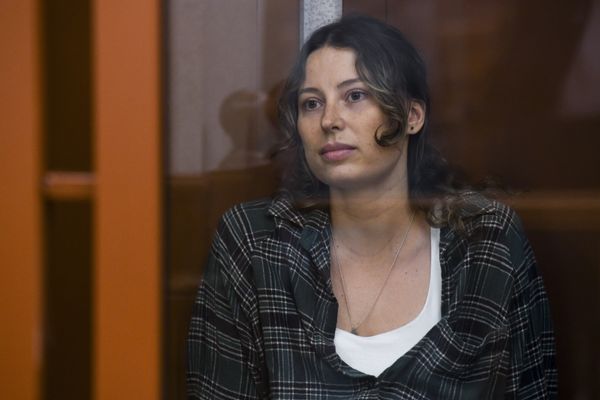
“We really need a reset,” said the journalist and author Matthew Syed, on Radio 4’s Today programme on Tuesday, discussing his and his wife Kathy Weeks’ book, What Do You Think?
“We need to fight for open inquiry and respectful disagreement … Attack the argument, attack the ball rather than the person. A pile-on shuts down the open inquiry which is so important.”
It has become commonplace, in so many discussions, from “cancel culture” to the wider perils of life online, to mourn the decline of civility. When did we stop being able to disagree? What happened to nuance and complexity? Why all the ad hominem attacks? Why can’t we hear a problematic opinion without immediately issuing a death threat? What happened to kindness in public life?
These questions are particularly deployed in the free speech debate, with a ratchet effect: if you can’t say exactly what you like, and have people respond to you in a kind way (anything unkind counts as “cancellation” or “wokery”), then you have lost your right to speak; and given that freedom of speech is such a core tenet of the broader principle of liberty, you have lost everything.
The potential consequences of cancellation are considered so vast – you could be doxed (have your personal or identifying details published online), you could get death threats, you could lose your livelihood – that even if you are mighty and your oppugner is just a guy off Twitter and all he did was call you a rude name, you have nevertheless been censored.
This argument has always been pretty asymmetrical: the speech that constitutes the catalysing event, being free, has no duty of kindness upon it (how are you supposed to speak your mind if you have to be kind to everyone?), and yet the response must always be civil. The debate has – apologies for the jargon – its arse on backwards. The putative threat is from the “woke army”, liberals so high on their own sanctimony that they won’t rest until they’ve chased their target from public life.
In fact, if you examine backlashes in any serious way – the rape and death threats, the doxing and baying mobs, the patriotic troll armies and wild bot amplification, these come overwhelmingly from the alt-right, and it is not unusual to be able to trace them back to authoritarian states. You can plot a direct line from explosions of online harassment back to Vladimir Putin, for instance: good luck sticking anything like that on Jacinda Ardern. This seems to be our reality now, something that we put up with as a minimum price of entry into the discourse: the left decried for behaviour that is actually typical of the right, and all of us vying to see who can concoct the most civil and apologetic response.
“For very well-intended reasons, we’ve sought to protect young people… from difficult points of view,” said Syed. “We fear they might experience distress if they hear a challenging opinion on trigger issues like trans, or obesity or race, or why some people are lazier than others.”
His argument feels a little underdeveloped: what does anyone say about obesity that’s “challenging”, other than “why can’t they get a better grip on themselves?”, which is trivial, ignorant and quite unkind? Why would “some people” be lazier than others? It sounded a lot like he was referring to a class-based narrative and I sincerely hope we’re still allowed to react to that, not necessarily in a civil way. Although, if the class-based narrative is, “why can’t Jacob Rees-Mogg sit up properly on a chair?”, or “why is Boris Johnson constantly on holiday while he’s supposed to be working?”, then I’ll reconsider.
Before Syed’s interview, we had heard about the situation in Manston. Four thousand humans have been kept in accommodation intended for 1,500, without enough beds, with diphtheria, without adequate food, with unaccompanied children, with people crying out to observers for help – a situation created within our borders as a direct result of the home secretary’s decisions. We had heard, the day before Suella Braverman’s justification that we were being “invaded”. Park the language, and concentrate on the logical progression: even if we were literally being invaded, and we captured that army, we would treat them with dignity and respect, as per the Geneva conventions. We would not imprison children.
So we have a government recreating the Boer war in Kent and a guest on the Today programme preaching nuance and civility. Civil values might tell us to avoid using words and phrases like racism, neocolonialism, inhumanity and concentration camp. There is a problem here, though: by avoiding ad hominem attacks on people like Suella Braverman out of civility, attacking the ball and not the (wo)man, you avoid any discussion of the morality of what she has done, of her apparent lack of empathy or sense of the preciousness of human life. Because it is not the ball that is at fault, here, it is the (wo)man, and if we accept into civil debate the stance that refugees are “invaders”, we normalise what is abhorrent.
Civility is great, but it is not the highest virtue. Yet civilly, and without personal attack, I say simply that these events are extremely dark and the time to debate who was rude to whom is long gone.
• Zoe Williams is a Guardian columnist
Do you have an opinion on the issues raised in this article? If you would like to submit a response of up to 300 words by email to be considered for publication in our letters section, please click here.







